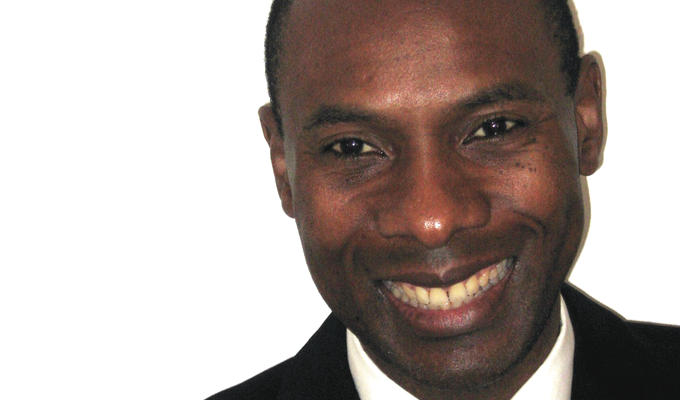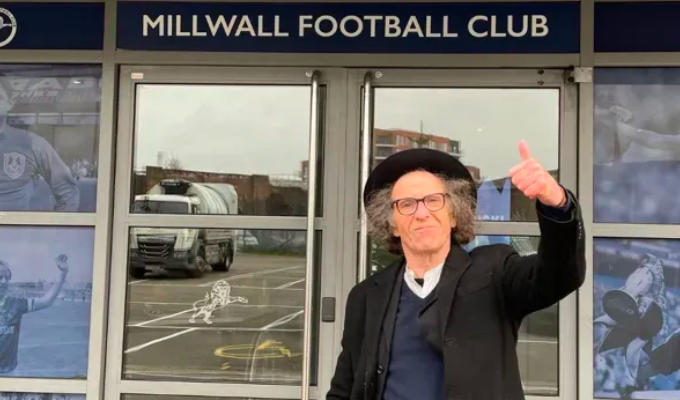
Comedy Under Attack by Carl Unegbu
Book review by Steve Bennett
You might think, globally speaking, that comedy is in pretty rude health. It’s spreading across TV and ever-increasing channels, while stand-ups can make millions from live work, using the internet to build personal fan bases their predecessors could never imagine.
Yet the bubble’s about to burst, according to Carl Unegbu, editor of the US website ComedyBeat, who argues that the art form comes under attack on several fronts.
Of course, not everything in the business is rosy. Big British clubs are certainly feeing the squeeze, and owners will cite factors such as the recession and the way TV has misled audiences into what to expect from stand-up nights.
Yet in this, self-published analysis of the American scene, Unegbu puts most of the blame at the door of... political correctness. Yes, this ancient scapegoat is still being dragged out, and Unegbu rarely misses a chance to say the PC brigade – it’s always a brigade – are stifling free speech.
But he doesn’t pick his battles very well. One of the first people he’s keen to defend is DJ Spoony – of all people! – talking on BBC Three’s Most Annoying People Of 2008 about lesbianism being OK for ‘the munters and the mingers’ because ‘nobody really wants them ones’ and that ‘hot ones’ should be saved for guys.
Another homophobic rant is a cause celebre, even though when it comes to making a stand for human rights, Guy Earle is probably nobody’s Rosa Parks. He was the Canadian comic who was fined after having a furious row with a heckler, reportedly telling her: ‘You’re a fat ugly cunt. No man will fuck you; that’s why you’re a dyke. You fat cunt.’
Quite how this even qualifies as comedy and not just abuse isn’t properly argued – Earle’s right to be as hateful as he likes is assumed to be absolute. Still, it probably shouldn’t be down to courtrooms, months after the event, to decide what is funny or not... and there is certainly a justifiable fear that such rulings can be the thin end of the wedge.
But Unegbu is not consistent in his defence, as proved when he mentions Tommy Tiernan’s poorly-received jokes about children with Down’s Syndrome being hard to understand, as well as claiming ‘nothing will ever define’ Tiernan as much as his 2009 comments about the Jews (‘Christ-killing bastards’), when he said he would have done a better job than the Nazis at obliterating them.
As some explanation, the Irish comic said that being on stage is about being ‘reckless and irresponsible an joyful, not about being careful and Scottish and mannered.. It’s about trusting your own soul and allowing whatever lunacy is inside you to come out in a special, protected environment where people know that nothing they say is being taken seriously.’
Yet while this is an interesting, though obviously debatable point, Unegbu suddenly abandons his idea that PC’s gone mad and calls Tiernan’s defence ‘profoundly breathtaking’ and states that no comedian has defended the Irishman’s argument (I would suggest he wasn’t looking hard enough). The difference is surely that Tiernan has proved himself to be funny at an international level, and might have got it wrong on one occasion, while Earle is a man in a bar, shouting specific vitriol at lesbians in their faces.
The second threat Unegbu sees for comedy is joke-stealing; though it’s not clear why this is so devastating. Comedy is pretty good at policing the thieves, and while the issue might rightly concern comedians keen to protect their work and their point of view, it seems unlikely this is doing serious damage to the art or business of comedy overall. Still he can regurgitate some interesting stories, such as Louis CK’s accusations against Dane Cook, to hold the interest.
Of more concern to comedy are the pay-to-play and ‘bringer’ gigs that as much as killed off live club comedy in the States, and here, at least, Unebgu is right to highlight the problem and describe its depressing, throttling effect on stand-up.
Unebgu’s third threat is comedy’s interface with the commercial world, which again allows him to wheel out the ‘political correctness gone mad’ argument. One key example he cites is of Gilbert Gottfried, who lost his lucrative contract as the voice of the duck who advertises AFLAC insurance after making bad-taste tweets in the wake of the 2011 Japanese earthquakes
His argument is that the finance company had a lot of business in Japan and had to distance themselves from the jokes to protect those interests, which is undoubtedly true. ‘Comedy gets crushed in the middle of the interaction between corporate America and political correctness,’ he asserts.
On the other hand, you can say that Gottfried chose to take the corporate dollar, and with that comes certain obligations. He flouted them, and lost that money – but no one stopped him doing comedy. They stopped him being the voice of a cartoon duck. His bad-taste tweets continue cheerfully to this day.
Incidentally, Unegbu reports on controversial jokes Gottfried made immediately after 9/11 at a roast of Hugh Hefner that drew hisses from the other comics in the audience. But he neglects to mention how he turned the room around with The Aristocrats joke, as so ably reported in Paul Provenza’s documentary about the gag – one of the most ‘politically incorrect’ there is.
Unfortunately, Unegbu’s arguments often seem naive, and the writing, laden with cloying cliches, is even worse. He insists on calling the challenges to comedy ‘headwinds’ which gets his metaphors into all sorts of twists when he tries to combine them with other turns of phrase.
‘Life in comedy today is anything but a cakewalk thanks to the serious headwinds that have gone into attack mode,’ he writes early on. Can a wind have an attack mode?
Of joke-stealing he says: ‘compared to the threat posed by political correctness, this headwind is a self-inflicted wound.’ A wind is a self-inflicted wound?
It’s a fruitful game to spot these. My favourite is: ‘As a result a new crop of comedy stars was minted literally overnight’ Literally? And you don’t mint crops...
And for his conclusion he goes back to that cakewalk. ‘For all the possible glory, life in comedy today is not a cakewalk, thanks to the headwinds that threaten rainfall on the parade. Needless to say life in the future of comedy won’t be a cakewalk either.’
• Comedy Under Attack: The Golden Age and the Headwinds by Carl Unegbu was published last month by ComedyBeat. Click here to buy on paperback for £11.93 or Kindle for £5.47
Published: 25 Jul 2013






